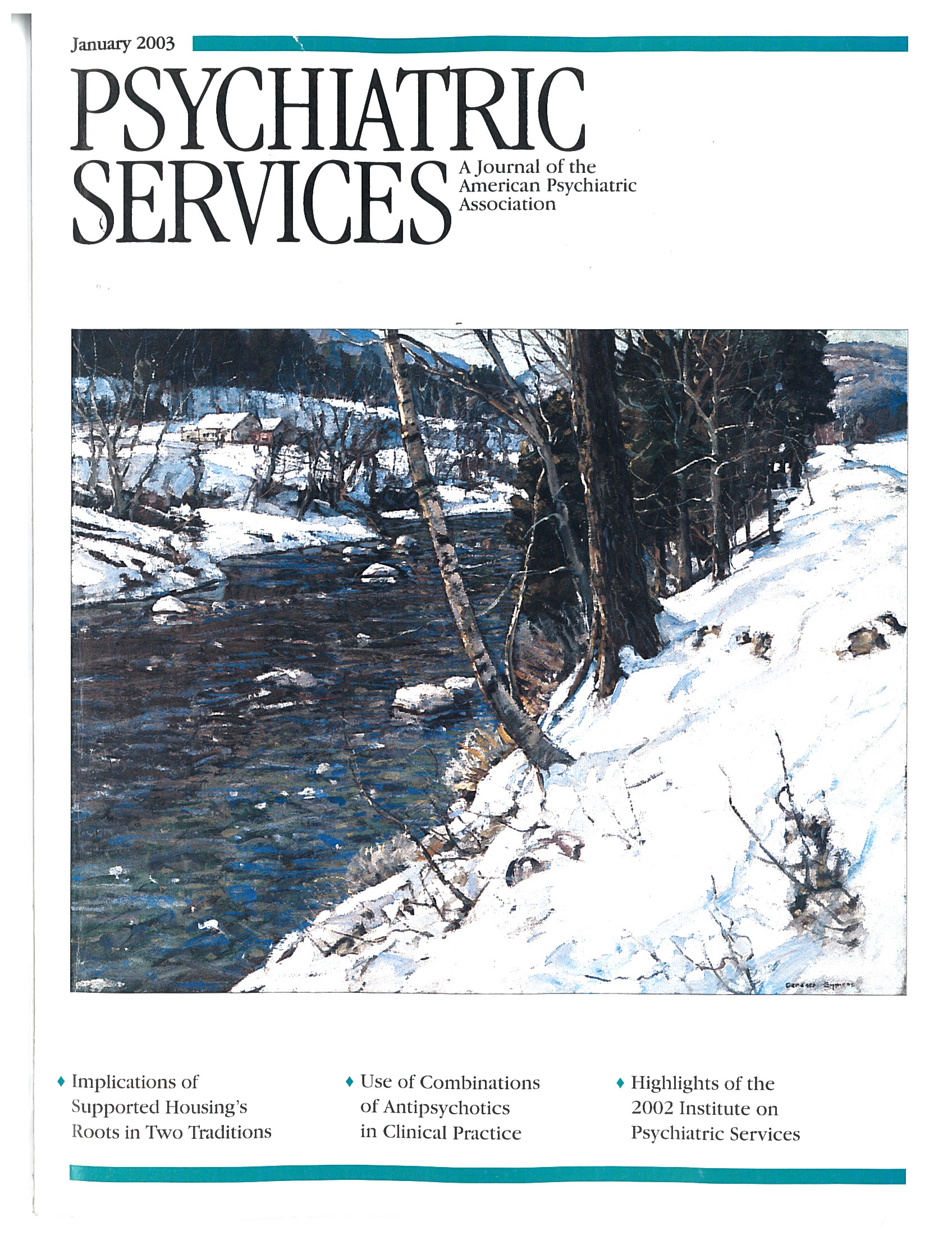Outcomes of Homeless Adults With Mental Illness in a Housing Program and in Case Management Only
Abstract
OBJECTIVE: The effectiveness of two types of service programs in ameliorating homelessness among individuals with severe mental illness was compared. METHODS: Homeless persons with severe mental illness were recruited into the study on their entry into one of two types of homeless service programs. The first was a comprehensive housing program, in which consumers received guaranteed access to housing, housing support services, and case management. The second was a program of case management only, in which consumers received specialized case management services. In a quasi-experimental or nonrandom-assignment design, participants responded to instruments measuring housing status, mental health symptoms, substance use, physical health, and quality of life at baseline (program entry) and at six months and 12 months after entry. The baseline interview was completed by 152 participants and at least one of the two follow-up interviews by 108 participants. High-, medium-, and low-impairment subgroups, based on psychiatric symptoms and degree of alcohol and illegal drug use, were formed by means of a propensity score subclassification. RESULTS: Persons with high psychiatric symptom severity and high substance use achieved better housing outcomes with the comprehensive housing program than with case management alone. However, persons with low and medium symptom severity and low levels of alcohol and drug use did just as well with case management alone. CONCLUSIONS: The results suggest that the effectiveness, and ultimately the cost, of homeless services can be improved by matching the type of service to the consumer's level of psychiatric impairment and substance use rather than by treating mentally ill homeless persons as a homogeneous group.



